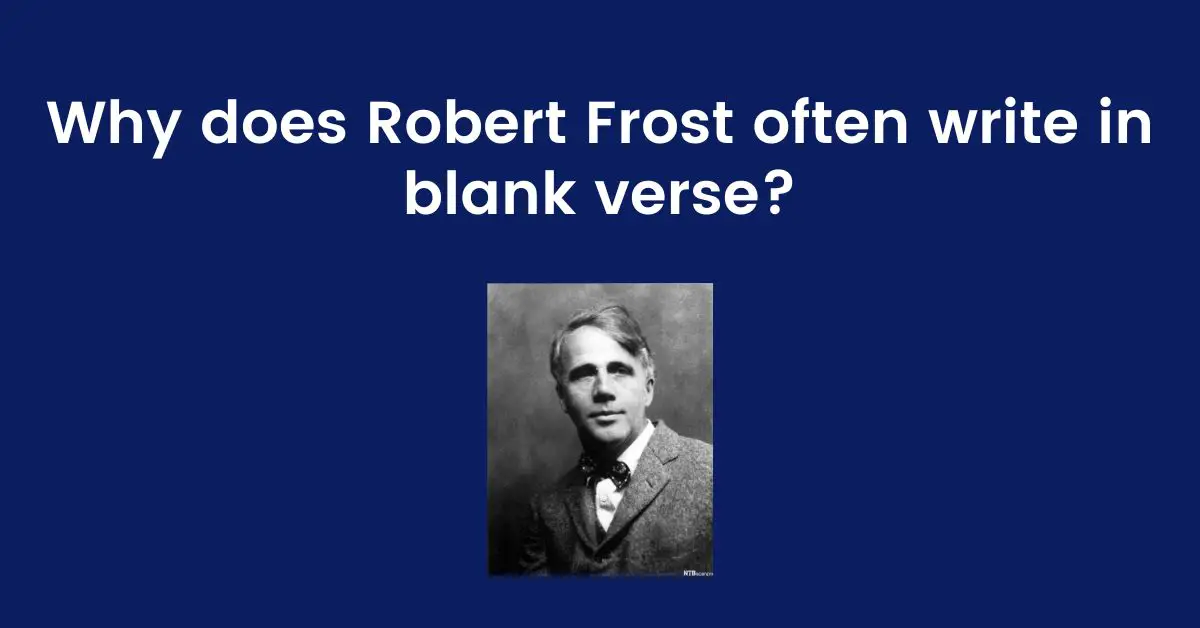Why does Robert Frost often write in blank verse?
Robert Frost, an iconic American poet and writer, is known for his poetry and distinct writing style. Besides, he focused on humanity in most of his acclaimed poetic pieces. From out-out to Birches, mending wall, After Apple-Picking and Nothing Gold Can Stay, Frost has talked about these two aspects simultaneously. Although many poets have written inspiring content about nature and humanity, Frost’s writing style distinguishes him from the others. This article intends to focus why did Robert Frost often write in blank verse?
Frost often writes in blank verse because this style of writing liberates him from the clutches of strict rules and patterns of writing a poem. A blank verse is a poetic line written without any lines or stanzas. In most cases, blank verse is written in iambic pentameter. However, a few exceptions to this rule include language not in blank verse and shorter lines than the required length. Therefore, Frost has used this writing style in many of his writings to express his ideas, feelings, and emotions impressively. Below are some examples of Frost’s poetry following the blank verse style of writing.
Example#1
“Out, Out” by Robert Frost
Frost Published “Out, Out” in 1916 in his collection Mountain Interval. The poem recounts the actual incident that happened to one of his friend’s sons. The setting of this poem is rural, and it begins when a young boy is cutting wood with his buzz. After some time, his sister calls him for supper, and just then, an unfortunate incident changes his life. He cuts his hand with the saw, and the wound later becomes fatal. The poem unfolds how a healthy boy loses his life shockingly. To express his grief for this tragic loss, Frost has implied blank verses in the poem, such as, “And then—the watcher at his pulse took fright.”
Example#2
“Birches” by Robert Frost
“Birches” is another poem by Robert Frost written in blank verse. The poem shows a speaker wondering why ice has covered the birch trees. His imagination leads him to conclude that the ice covering facilitates the young boy who enjoys climbing while swinging from the branches of this tree. Frost has used this in a poetry genre consisting of a regular rhythm pattern—iambic pentameter—but no recurring rhyme scheme, such as; When I see birches bend to left and right.”
Conclusion
Thus, Robert Frost famously opined that writing free verse is like playing tennis without a net. Like many other admirers and practitioners of formal poetry, Frost saw excessive glorification and freedom of expression in free verse.

